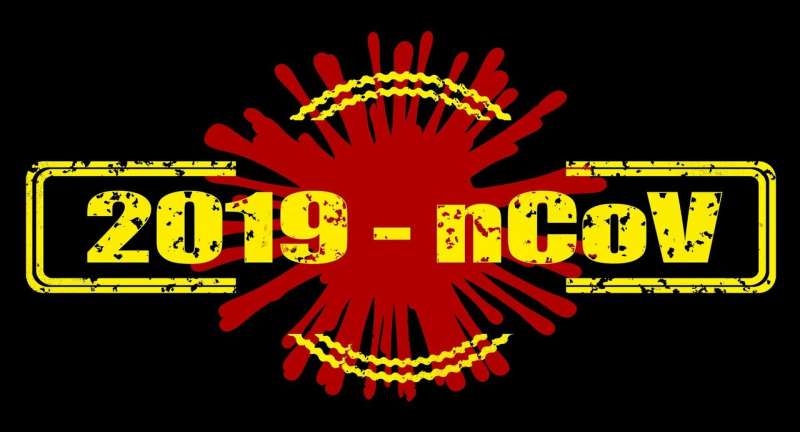Credit: CC0 Public Domain
Nightlife capitals New York and Los Angeles ordered bars and restaurants to close or go take-out only Monday as the US scrambled to contain the coronavirus pandemic and the Federal Reserve slashed rates to stem the fallout.
The fast-spreading outbreak has claimed almost 70 lives in the United States, disrupting every walk of life as Americans panic-buy essentials and brace for what may come.
Faced with an economic slowdown, the Fed announced emergency measures to shore up confidence and keep the financial sector running, including cutting the key interest rate to 0-0.25 percent.
President Donald Trump, in a now-daily briefing to his virus task force, praised the Fed's "phenomenal" action and sought to strike a reassuring tone even as he pleaded with Americans to stop stripping store shelves bare.
"Relax. We're doing great. It all will pass," he said.
But Anthony Fauci, the country's leading expert on infectious diseases, was blunt in telling Americans to prepare for hard times.
"The worst is ahead for us," he told the briefing. "We have a very, very critical point now."
In drastic measures, New York's Mayor Bill de Blasio said the city's usually buzzing bars and restaurants would be restricted to take-out or delivery, and that nightclubs, theaters and concert venues must close starting Tuesday.
Schools, museums and sports arenas have already been shut in many US states—but lively St Patrick's Day celebrations were still held despite pleas to limit socializing, prompting calls for more aggressive action.
"Our city is facing an unprecedented threat, and we must respond with a wartime mentality," De Blasio said in a statement.
'Not a joke'
Reinforcing the message, the Centers for Disease Control and Prevention recommended that gatherings of 50 people or more be canceled or postponed, not including day-to-day education or business activities.
In the strongest measure yet on American soil, the US territory of Puerto Rico imposed a 9pm to 5am curfew—along with the closure of malls, movie theaters, gyms and bars.
As a number of states imposed shutdowns, the governor of Illinois, which includes the city of Chicago, announced that all bars and restaurants would close until March 30.
"The time for persuasion and public appeals is over. This is not a joke. No one is immune to this," Governor J.B. Pritzker told a news conference.
Los Angeles also said it would close bars, restaurants and nightclubs for at least two weeks, while California's Governor Gavin Newsom asked people over the age of 65 to self-isolate.
Several major Las Vegas casinos and hotels were shuttered, and party town New Orleans issued guidelines halving the capacity of bars and clubs.
Joe Biden, frontrunner to be the Democratic contender taking on Trump in November elections, said that in the president's shoes he would call the military out to help tackle the outbreak.
But whispers about a nationwide lockdown were firmly put down by the National Security Council, which tweeted: "Text message rumors of a national #quarantine are FAKE."
Airport chaos
US airports have been hit with a flood of Americans since restrictions on travel from Europe took effect. The ban will extend on Tuesday to Britain and Ireland.
Over the weekend frustrated passengers complained of hours-long lines and unsanitary conditions as people were screened for symptoms.
American Airlines was among the carriers slashing their schedules, with plans to reduce international capacity by 75 percent until early May.
Meanwhile United said it would announce a cut in capacity of around 50 percent for April and May.
The airport chaos was the latest evidence of turbulence in the administration's response to the pandemic that started in China late last year.
In the US, 69 people have died and more than 3,700 have been infected, according to a running tally by Johns Hopkins University.
The US Navy reported its first suspected case of the disease aboard a ship, saying a sailor on the USS Boxer had tested "presumptive positive" and was in quarantine at home.
The outbreak has outpaced the government's capacity to measure its scope through wide-scale testing.
In Sunday's briefing, Vice President Mike Pence said free testing was now available in all states and that more than 2,000 laboratories were equipped to process tests "much more rapidly".
Trump, who had played down the risk of infection early on, has tested negative for the virus, days after potentially being exposed to it.
The White House said Sunday it would begin checking the temperature of anyone entering the complex.
© 2020 AFP
























